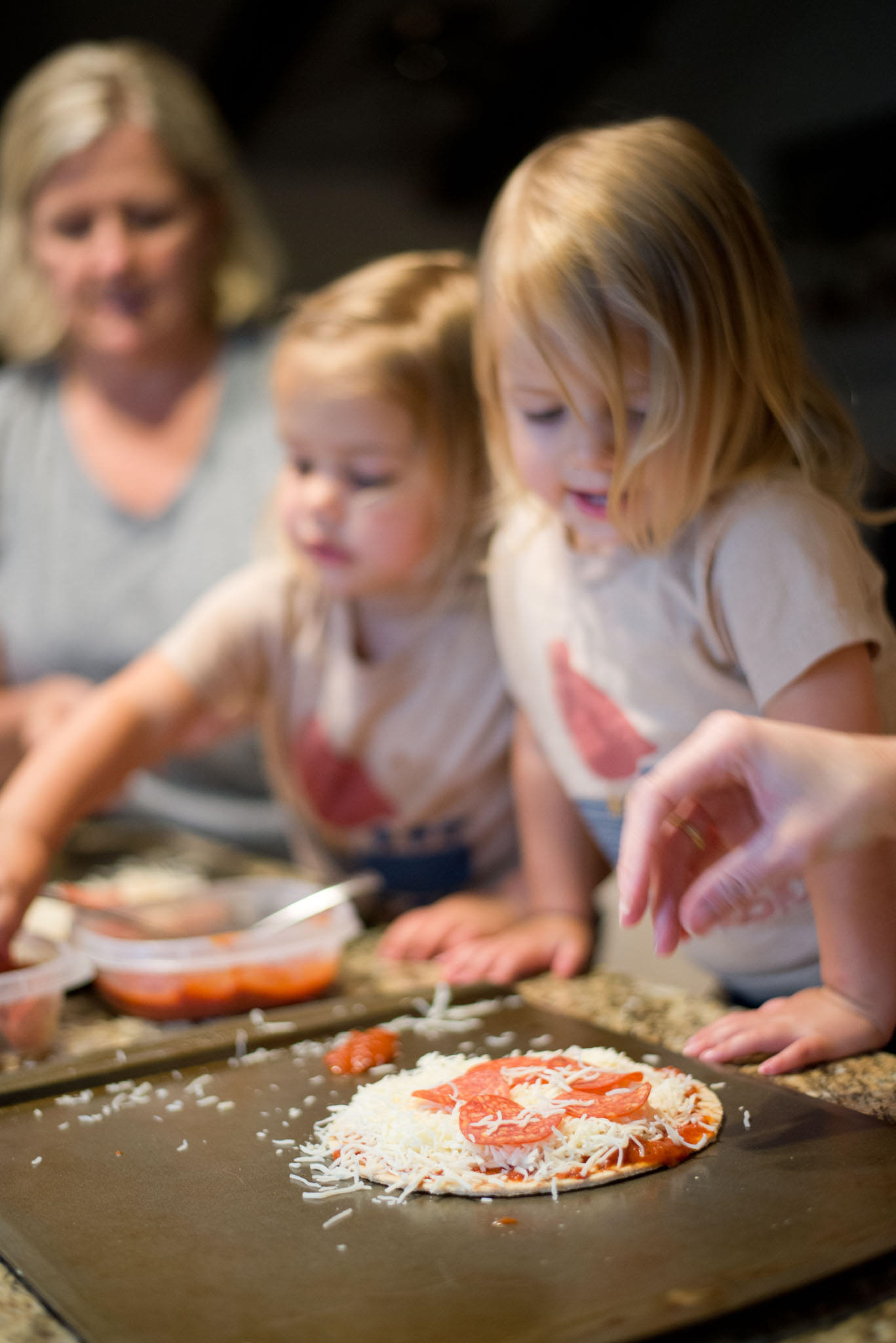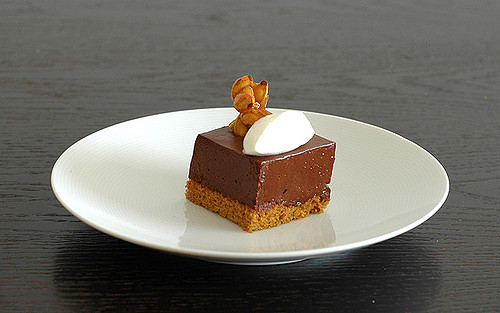French eating habits: an introduction for your kids
 French eating habits are traditionally very healthy, and food is first and foremost a pleasure. Most French children will devour food that children in other countries may never even encounter: Roquefort cheese, mussels, vinaigrette on green salad and vegetable soup. So what’s the secret?
French eating habits are traditionally very healthy, and food is first and foremost a pleasure. Most French children will devour food that children in other countries may never even encounter: Roquefort cheese, mussels, vinaigrette on green salad and vegetable soup. So what’s the secret?
In her book ‘French Kids Eat Everything’ Karen Le Billon describes a scene she experienced in a French restaurant, of a toddler dining with his parents: “He sat patiently as the meal progressed, eyes glazing over until he slumped over and fell asleep while his parents continued their meal undisturbed. When it was time to go, their child was woken up without ceremony. Popping his thumb in his mouth, he placidly allowed himself to be carried out of the restaurant without making a sound.”
French eating habits see French children not only eat what is put in front of them, but they are also taught to treat food and meal times with respect. Food, they learn, is an art form: an object of fulfilment to be shared with others. They will eat wholesome, natural food, try new flavours and participate in discussion at the dinner table. So how do we teach our children to do the same? Here are some tips for introducing your children to French eating habits.
Begin treating meal times as an event
Eat at least one meal a day as a family and treat it as an event to look forward to. Use pretty plates, glasses instead of childish cups and a tablecloth. Karen Le Billon suggests putting in place a meal time ritual where each member of the family recounts their favourite part of the day. Do not allow electronics or toys at the table. Mealtime should be for sharing and discussion and you and your children should have each other’s full attention. Allow your children the fulfilment of participating independently in the meal by letting them set the table and serve their food themselves.
Introduce new foods gradually
Many French people believe in the phase d’opposition, a phase that begins at age two in which children begin to reject new foods. For this reason, they gradually introduce a large amount of new foods throughout the first two years of life. They begin by offering soft, mild food to babies before progressing to stronger flavours and different textures. So, you will more likely find a French baby eating soft Roquefort than cheddar, and beginning with leek purée before moving on to whole vegetables.

If your children dislike vegetables, start them off with a smooth soup of carrots or courgette. You can have fun with the colours, pureeing beets for a pink purée or red pepper for a bright red soup. You may have to serve the soup a few times before they begin to enjoy it. Serve new foods alongside food that your children already like. Pasta can be tossed with spinach, for example.
Let your children see you tasting new foods, too. Take yourself out of your comfort zone and discover new flavours with them! Once your child is enjoying a certain food in one form, you should try serving it in a different way. After they have discovered carrot soup, serve thin slices of steamed carrots as part of the next meal. Do not put pressure on you children to eat new things. French eating habits dictate that everyone must taste, but they aren’t obliged to finish if they dislike something. Forcing a child to eat a particular food will cause a long term aversion to it.
Everybody must eat the same

Most importantly, you must abide by your own rules: your children cannot be expected to change their eating habits if you are not leading by example, so try to adapt French eating habits yourself.
Reduce unnecessary snacking
Numerous western cultures are prone to offering their children snacks every few hours, but French children eat one big snack a day. This is usually a bowl of fruit, a sandwich or apple compote. The French teach their children that it’s okay to feel a little hungry between meals, and believe that reducing snacking means their children will eat more at meal times, including the vegetables served.
It may be hard to get children out of the habit of snacking, and into French eating habits—especially if they are used to eating between every meal. Instead of abolishing snacking completely, you could offer just fruit when your child asks for food. Plan snack-time for mid afternoon; French children have the gouté at around 4pm. Get your children involved in choosing their daily snack: fruit salad one day, banana bread the next. As a treat, they could even have Karen Le Billon’s chocolate stuffed baguette! Everything in moderation is the key.
Include your children in meal prep
 You are in charge of the menu in your house, but this does not mean that your children should be denied a choice. Instead of disguising healthy food, encourage children to help you put family meals together. Allow them to choose a type of vegetable for each meal, or a healthy dish from a selection you have given them.
You are in charge of the menu in your house, but this does not mean that your children should be denied a choice. Instead of disguising healthy food, encourage children to help you put family meals together. Allow them to choose a type of vegetable for each meal, or a healthy dish from a selection you have given them.
Children can participate in the cooking too. Preparing a meal will give them more of an incentive to eat it, and will teach them where their food comes from and how the different flavours come together. Have your child stir the pot on the stove or chop soft vegetables with a butter knife. Children love to feel included and if you trust them with these jobs, they will begin to see your new ‘food rules’ as a family choice. In this way, French eating habits will become second nature.
Treat food as a pleasure
Healthy food choices are a part of French eating habits, providing a path to enjoyment and health and definitely not as a way to lose weight. Explain this to your children in a way they will understand: “wholesome food will help us grow, strengthen our bones, give us more energy and feel more satisfying.” Treat food as something to delight in. Eat slowly and discuss the taste and texture of the food you are eating. Suggest that the children take small bites and ask them what they can taste in their cheese, or what the mousse au chocolat feels like on their tongue.
French eating habits are such that parents never use food as a punishment, reward or bribe. There are no cookies as an incentive to keep children quiet in the car, and dessert is rarely taken away for bad behaviour. This would undermine the positive aspect that the French teach their children to associate with food.
Have these tips been helpful to you? Will you be introducing French eating habits to your family? Let us know in the comments below!
Image credits:
- Enfant qui a faim by George Hodan, via PublicDomainPictures.net.
- Dining table by RealAKP, via Flickr.
- Beetroot soup by Kake, via Flickr.
- Untitled by Ajale, via Pixabay.
- Cherries by StockSnap, via Pixabay.
- Making Pizza by Donnie Ray Jones, via Flickr.
- Dark Chocolate Mousse and Pumpkin Sponge Cake by Clement Lo, via Pixabay.
- Boy eating bread by Petr Kratochvil, via Public domain pictures (featured image)










I really saw French friends feeding their kids stuff from their own plates. Kids just want what you’re having. They are suspicious of anything that’s different just for them–they are sure they are getting the inferior goods.
Bonjour Taste of Paris: seems we overlooked your comment – desolé
Thanks for taking the time to stop by! – Judy